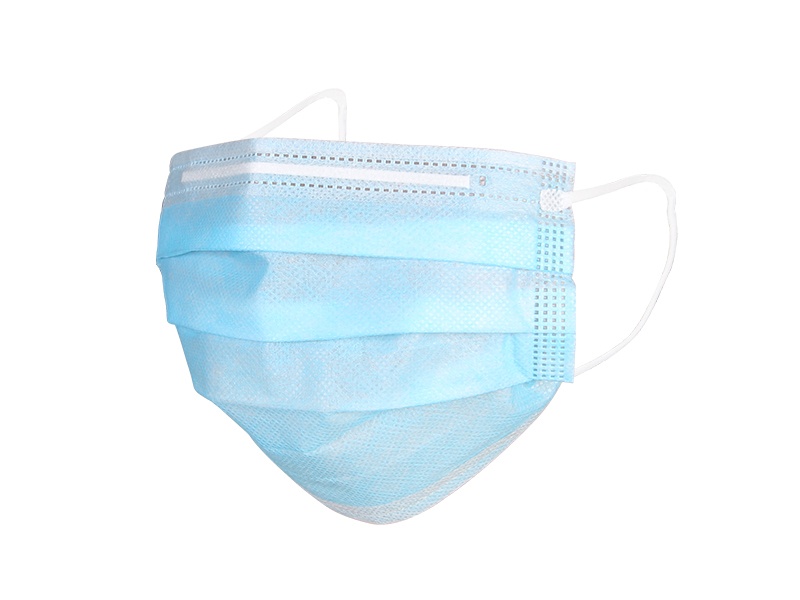There are many different types of
disposable face masks, and here we'll explore their effectiveness, cost, and reliability, as well as their impact on the environment. This article will also provide some tips to help you choose the right one. The best masks are those that don't create a lot of waste.
effect
While epidemiological studies suggest that disposable masks are an effective way to reduce the spread of respiratory infections, the evidence is mixed. Many studies have only one or two results, which lack statistical significance. Other studies have shown that masks can reduce aerosols from coughing or other exhalation activities, but the effectiveness of different types of masks has not been studied.
Healthcare workers are advised to use N95 respirator-type masks. N95 masks are the most effective at filtering viral particles.
cost
Disposable masks can be expensive, especially when purchased in bulk. A box of 100 masks can set you back PS164, which can be a big change. If your business has 100 employees, that's closer to $40,000. Additionally, you must provide employees with hand sanitizer and protective screens. And, if you're serious about keeping your employees safe from the flu or other respiratory infections, you might want to consider investing in surgical masks.
The Disposable Face Masks Market report includes the latest trends as well as macro and microeconomic data. It also provides information on key drivers and challenges and shows the expected market size and growth over the forecast period. It also covers the current and future competitive landscape.
Governments are increasingly focused on meeting the demand for masks. During a pandemic, masks can play an important role in keeping employees safe from the virus. However, disposable masks are not without their drawbacks. If you're considering purchasing single-use masks for your employees, consider the impact on the environment.
reliability
One study found that the reliability of disposable face masks was low. It found that 20% of masks were rejected due to deformity, broken elastic or lipstick. The researchers suggest that there are ways to improve the reliability of masks without compromising their carbon footprint.
Reliability is an important consideration for medical professionals. Disposable masks that are not properly sterilized can lead to infection. This is especially important for patients with chronic diseases such as COPD. Masks should be readily available to medical staff and those at risk. The researchers also recommend that GPs educate patients about MNC risks. Additionally, users should understand the different types of masks and how to handle them.
A reliable disposable mask should have three layers. This will stop most airborne particles. The study used N95 masks approved by the National Institute for Occupational Safety and Health. It can filter out 95% of airborne particles. Equivalent to China's KN95 masks. In addition to N95 masks, there are also washable woven cloth masks that cover the nose and chin. These masks ranked third in blocking airborne particles.
impact on the environment
The environmental impact of single-use masks has received increasing attention. The study aimed to investigate the impact of using these masks globally. The scope of the study is broad; it considers all stages of the production of disposable face masks from raw material procurement to point-of-sale. It also assesses regional differences in environmental impact.
The results of the study show that disposable masks contain a large number of pollutants, including micro/nano particles, heavy metals and other pollutants. This pollution will have a major impact on the environment. Additionally, it raises concerns about possible damage to public health. Some of these substances are known to cause cancer, cell death and genotoxicity. To address these issues, the researchers are calling for greater regulation of the manufacturing process.
Disposable masks are made from non-woven polymer fabrics such as polycarbonate and polypropylene. A typical disposable blue face mask contains three layers: The filtering middle layer is made by using high-speed blowing air to force molten polymer through tiny nozzles. In addition to causing health problems, disposable masks are also highly polluting by polluting waterways and accumulating microplastics.
 Disposable Flat Mask (Non-medical)
Disposable Flat Mask (Non-medical)
Description:
• T/CTCA-2019
• 3 Layer
• Bacterial filtration efficiency ≥ 95%
• Blue
Benefits:
• Efficient barrier of bacteria and particles
• easy to carry with
• Disposable
Dimension:
• 175*90(±5mm)
